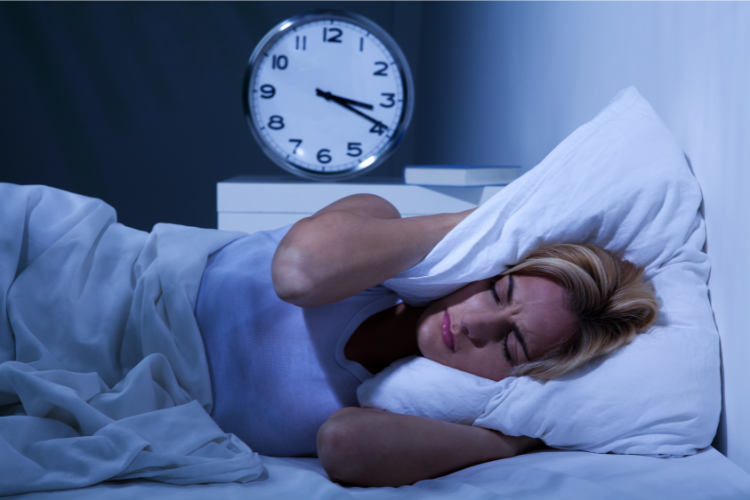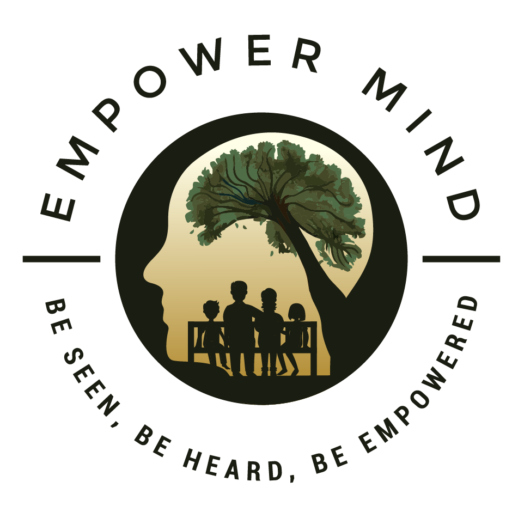
Insomnia is a common but treatable condition
Everyone has had a night where you just can’t fall asleep no matter how hard you try. It’s natural to have isolated occasions of a sleepless night here and there, but when it becomes chronic, then it’s a problem. This condition is called insomnia, and we can help you take steps to cure it so you can get a good night’s sleep. Insomnia is an all-too-common problem for many different people.
When you have insomnia, it can be difficult to fall asleep. You may lay in bed for hours, staring at the clock with no relief in sight. Or you might fall asleep, only to wake up a few minutes later or much too early for a full night of sleep. It causes sleep deprivation, which can be dangerous if it continues for too many sleepless nights.
Insomnia is a frustrating condition, defined as an inability to fall or remain asleep, which affects 30 – 60% of the population. Chronic insomnia can result in fatigue, mood disturbance, difficulty with focus, and poor performance at school or work. Insomnia can have many causes and is often associated with other underlying conditions which should be ruled out by a medical professional, including endocrine or gastrointestinal disorders, respiratory issues, or neurological conditions. Sleep disorders such as restless leg syndrome and sleep apnea can cause it as well.
People with insomnia can be irritable or show other signs of mental distress like anxiety, depression or panic attacks. Insomnia can create a feeling of excessive fatigue and the necessity to sleep during the day. Because of your sleep deprivation, it can be dangerous to drive or to do tasks that require mental focus. The side effects of this disease are downright dangerous, so it’s important to treat your lack of sleep.
The causes of insomnia vary, but in most cases can be treated or your behaviors can be changed. A common reason for insomnia is stress. You may be lying in bed every night worried about money, the future or your job, and that worry is keeping you awake. If you’ve suffered something life-changing like a death or job loss, the side effects of that event could be the inability to sleep. Here are some of the many other causes of insomnia:
Insomnia may affect different people in different ways, but there are common traits to those with the condition. Some of the symptoms of insomnia include:
Sleep is a basic human need, just like eating and breathing. You need a proper amount of sleep for your body and mind to perform optimally. Not getting enough sleep can, over time, lead to deadly consequences. Medical research links sleep deprivation to an increased risk of:
Lack of enough sleep affects your mental well-being, while also impacting your daytime performance and safety. Insomna also has a negative economic impact. A recent study shows that this sleeping disorder causes $63 billion in lost work performance yearly.
Most people recover from this sleeping disorder before it develops into a chronic problem. And not everyone is affected in the same ways, whether for acute or chronic insomnia. But some people are more susceptible to suffering from insomnia. The risk factors for the condition include:
Most people recover from this sleeping disorder before it develops into a chronic problem. And not everyone is affected in the same ways, whether
Still, there are steps you can take to avoid insomnia, and can take insomnia treatment or, if you already have it, to get it treated. If you have problems falling asleep or staying asleep at night, contact a trained psychiatrist at the Empower Mind for diagnosis and treatment.
for acute or chronic insomnia. But some people are more susceptible to suffering from insomnia. So, you have know about insomnia treatment. The risk factors for the condition include:
When you seek a diagnosis, your doctor takes a medical history first. If you’ve kept a journal of your sleep patterns, that helps your mental health doctor learn how long your lack of sleep has been a problem. To reach an accurate diagnosis, you may need to undergo a series of comprehensive diagnostic tests, including:
Your doctor carries out these tests to find if you have an underlying physical cause. If you do, it can be treated. An accurate diagnosis points your doctor to the best insomnia treatment in your case.
Whatever the cause of your sleep problems, we can help you regain the sleep that you need to function and live a happier, healthier life.

A mental illness is a condition that affects a person’s thinking, feeling, behavior or mood. These conditions deeply impact day-to-day living and may also affect the ability to relate to others. If you have or think you might have a mental illness, the first thing you must know is that you are not alone.
Copyright © 2023 — All rights reserved by Empower Mind | Website Made By SalesEnzine.